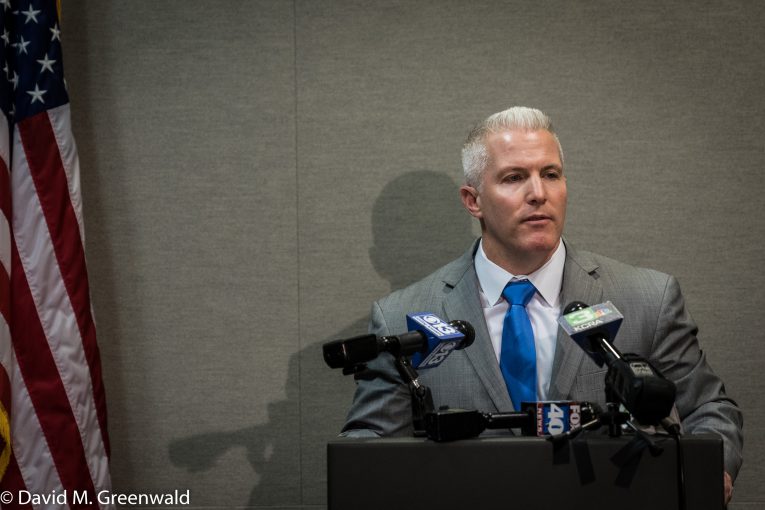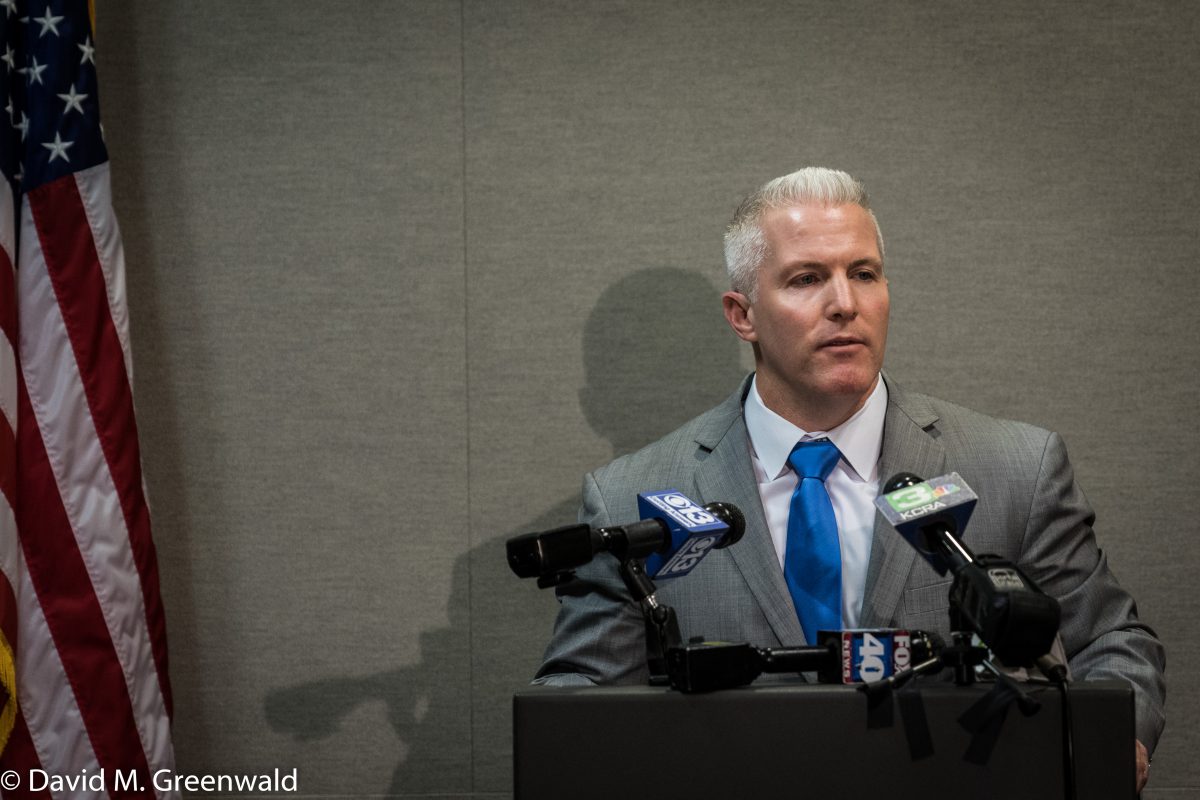

By Danielle Silva
On Sept. 25, 2019, DA Jeff Reisig published an opinion piece to the Sacramento Bee encouraging the implementation of Assembly Bill 1331. AB 1331 requires criminal justice agencies to provide additional information on court records to the state and prohibits agencies from refusing data requests from any public agency or research body solely on criminal background, with the exception requests from a “person [who] has been convicted of a felony or any other offense that involves moral turpitude, dishonesty, or fraud.”
“AB 1331… is a much needed step toward improving the state’s data and bringing some long overdue transparency to its criminal justice system,” Reisig stated.
Reisig noted the importance of having data accessible and available in the criminal justice system, specifically noting how AB 1331 will be useful in providing “more accurate and complete” defendant records for members of the criminal justice system, and would allow sharing criminal justice system records with research institutions for further analysis.
He points to San Francisco District Attorney George Gascón’s DA Stat, a data system that gathers data on arrests, prosecutions, and types of crime from the SF District Attorney’s office and is publicly accessible, stating the benefit of having that data easily accessible. Reisig also points to the Yolo County District Attorney’s Office making efforts to collate data more effectively, having used code from the nonprofit organization Code for America to dismiss 728 marijuana-related convictions after Prop. 64’s approval.
While Reisig talks about the benefits of having information easily accessible in a data-driven time, AB 1331 only slightly changes already existing law concerning data.
The bill has amended California Penal Code §§ 13150 and 13151 to include arrestees’ Criminal Investigations & Identification (CII) number, an incident report number, and a court docket number in reports submitted to the state, and changed California Penal Code § 13202 to say, “A person shall not be denied information pursuant to this section solely on the basis of that person’s criminal record unless the person has been convicted of a felony or another offense that involves moral turpitude, dishonesty, or fraud.”
Preceding the text of AB 1331: “Existing law requires criminal justice agencies to compile records and data, including a summary of arrests, pretrial proceedings, the nature and disposition of criminal charges, sentencing, incarceration, rehabilitation, and release, about criminal offenders… [and] authorizes each public agency and bona fide research body immediately concerned with the prevention or control of crime, the quality of criminal justice, or the custody or correction of offenders to be provided with criminal offender record information required for the performance of its duties.”
While these changes may be slight, Californians for Safety and Justice, one of the sponsors of the bill, claims that CII numbers and incident report numbers would help bridge data gaps in criminal history records across the different county systems.
“The criminal justice system not having consistent data was scary to us,” Jay Jordan, Executive Director of Californians for Safety and Justice, stated. “We felt the little we did get would increase the effectiveness of criminal justice agency reporting.”
Across California, each of the 58 counties has a different recording system with some still using paper filing. Jordan believes the inclusion of the CII number will help the Department of Justice track individual cases and match charges with incident reports more effectively, allowing the different county systems to communicate with each other.
Before AB 1331, CII and incident report numbers were not required by law. As such, files could be misplaced and reports of the incident could be left separate from the charge. Jordan believes this new law will assist the DOJ in processing.
“These systems are intended to house the totality of someone’s criminal history,” Jordan states. “If we’re missing any part of that, that could be harmful to someone.”
AB 1331 will particularly assist individuals in the process of clearing records. Jordan shared his own story, stating that he had been involved in a crime two months after his 18th birthday. While this happened 15 years ago, the crime still haunts him. He believes the bill’s focus on “individual impact, stories, and lives [speaks] to the larger picture at hand,” such as the eight million other people in California with criminal records, 90 percent of whom have served their time.
“Everything is ‘right now,’” Jordan stated in addressing the agency of getting information out. “If something is not up to date, it’s really scary.”
In a previous version, AB 1331 also changed the reporting rate from monthly to weekly. A weekly rate, however, became a major opposition point.
The California Law Enforcement Association of Record Supervisors (CLEARS) had been quoted in the Assembly Floor’s analysis, stating that “the goals of the proposed legislation are already accomplished by requirements specified under existing law.” Particularly, they noted the data was already sent to the Monthly Arrest and Citation Register (MACR).
Joseph Surges, Legislative Chair of CLEARS, shared that a weekly rate would strain already many understaffed law enforcement support teams. He also stated that AB 1331’s earlier version, similar to bills requiring more data submission, mandated the state provide money to make up for funds. These funds, he finds, are never paid back.
With the weekly data submission changed, he finds AB 1331’s revision “has no real impact on Records, it targets the DA and court offices.” However, Surges still believes that the new bill already has its goals met with existing law.
“I don’t believe they will close any gaps,” Surges stated. “That information is already on criminal histories and if it is your criminal history, you already have a right to it. It’s just a matter of getting the data transmitted in a timely manner.”
Jordan recognized the understaffing of the law enforcement support staff in his interview, but saw AB 1331 as a means of prioritizing duties rather than stretching out the duties of an already stressed staff.
“It’s not about 100 people being overworked,” Jordan states. “There needs to be more attention and budget around managing data systems. The whole criminal justice system is understaffed because so much money is about locking people up and not being effective.”
AB 1331 focuses on gathering data in a way that doesn’t attempt to upheave the entire court reporting system. The bill lays the groundwork for connecting different existing record reporting systems, both electronic and hard copy.